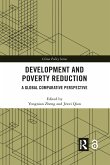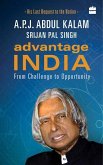In 2004 the Congress-led United Progressive Alliance coalition unexpectedly came to power in India, promising to govern in the interests of the aam aadmi . Over the next decade, it introduced several rights-based laws and welfare programmes targeting mass poverty. However, how fully did the UPA deliver on its promise to meet the needs of the poor? In The Politics of Poverty Reduction, four internationally-reputed specialists in Indian politics and public policy answer this by offering a critical review of the five most important initiatives: the National Food Security Act, the Mahatma Gandhi National Rural Employment Guarantee Act, the Integrated Child Development Services, the Jawaharlal Nehru National Urban Renewal Mission, and the Forest Rights Act. The first systematic review of the politics and policy-making behind the UPA's anti-poverty programmes, this book unearths the constellation of interests that shaped their legislation, and the key roles played by central, state and local governments, senior politicians, bureaucrats, civil activists, courts and the private sector in influencing the UPA's agenda. Focusing on political dynamics and the crucial issue of implementation, the authors address how concerns such as coalitions of interest, resource availability, and local and state administrative capacity shaped what was thought possible at the implementation stage. This book contributes to our understanding of official Indian thinking on poverty in the twenty-first century, and how India's partly rights-based welfare regime assumed its present form. Explaining the persistent gap between intent and outcomes of social policy in India, this first substantial assessment of the UPA in power will be invaluable for students and scholars of economics and development studies, public policy, governance and sociology.
Hinweis: Dieser Artikel kann nur an eine deutsche Lieferadresse ausgeliefert werden.
Hinweis: Dieser Artikel kann nur an eine deutsche Lieferadresse ausgeliefert werden.








